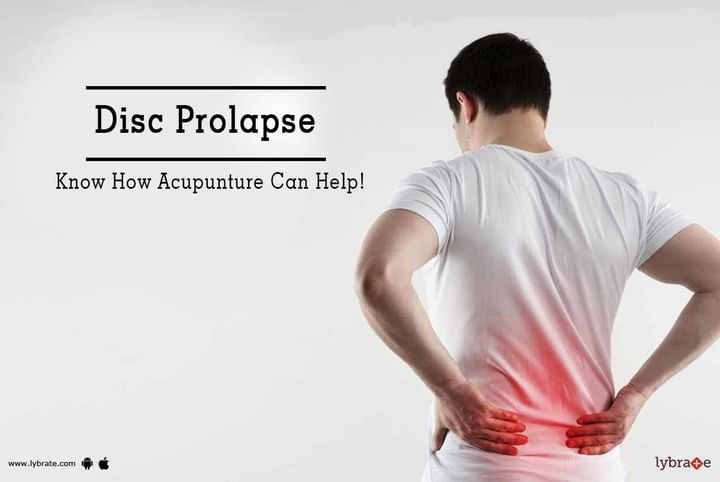Disc Prolapse - Know How Acupunture Can Help!
Disc prolapse – or what is popularly known as a herniated disc – occurs when the soft, rubbery tissues of the spinal discs push through a crack in the tougher exterior casing. It usually results from wear and tear of the spinal discs over time.
Risk Factors-
The following factors may put you at risk of a disc prolapse –
• Genetics – You may have a tendency towards developing a disc prolapse
• Occupation – People who are engaged in physically demanding jobs are more likely to develop back pain
• Weight – Excessive body weight puts pressure on the discs in the lower back
Signs to Watch Out for-
Signs and symptoms of disc prolapsed may include the following –
• Pain in the legs, particularly in the calf, thigh, and buttocks
• Pain in the arms and shoulder that intensify when you sneeze, cough, or even move your spine into certain positions
• Tingling or numbness in the affected areas
• Muscle weakness
• Inability to hold an object
If the pain deteriorates i.e. if the pain shoots down from your back or neck to the extremities, consult a doctor immediately.
Acupuncture for Disc Prolapse-
Although there are certain non-surgical and surgical treatment methods, many healthcare professionals and doctors nowadays recommend acupuncture as an alternative cure.
- Acupuncture is an ancient Chinese practice that believes that people possess ‘Chi’ or an energy force. When the force is unbalanced or blocked, your body becomes susceptible to illness and pain. Traditional acupuncturists strive to free up these energy channels (known as meridians) by inserting needles into specific points in your body. It activates the release of endorphins in your blood, which acts as natural pain relievers and reduces pain.
- The process involves inserting multiple needles, depending on your diagnosis. Most people do not feel pain when the needles are inserted. In fact, they feel relaxed or energized. The acupuncturist will leave the needles in for about 20-40 minutes – this may cause temporary soreness but do not pose serious complications.
- Acupuncture can help relieve pain associated with bulging, herniated disc. If you are considering this option, you should visit a complementary and alternative medicine practitioner.



+1.svg)
